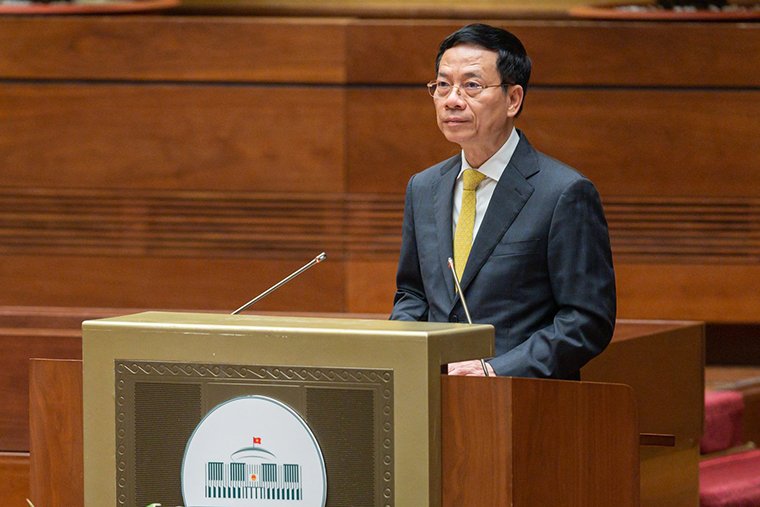
Minister of Information and Communication Nguyen Manh Hung on Tuesday presented a legal draft to the National Assembly (NA) to amend the Law on Electronic Transactions.
The draft expands the scope of the Law to include e-signatures, e-certificates, and the conversion between paper-based documentation and data messages.
It also legally recognises electronic transactions and adds new cybersecurity and data security regulations to the Law.
"The introduction of e-certificates will act as a catalyst for the widespread use of electronic transactions in all sectors across the board", he said.
In response to the draft, the Chairman of NA's Science, Technology and Environment Committee, Le Quang Huy, said his committee concurred largely with the draft.
He said the draft worked consistently with free trade agreements of which Viet Nam is a member. However, it had not fully covered the notion of 'data message' specified by the United Nations Commission on International Trade Law in 1996.
For that reason, he called for a revision to the draft to ensure its compatibility with international agreements.
He also agreed with expanding the legal scope but was concerned that the draft's scope might not be exhaustive. He called for a revision to Article 2 to ensure no potential subjects would fall out of the scope.
Regarding Articles 10 and 11, he asked for further clarification on the definition of 'electronic document' and the validity of data messages to ensure the articles accord with the Law on Notarisation.
He underscored Article 14, which requires an identity between paper-based documentation and their correspondent data messages, as a legal burden for commercial banks because the banks, in most cases, are not issuers neither holders of the documentation.
Article 14 also stipulates that data messages must be signed with e-signatures if their correspondent paper-based documentation has been signed manually.
The chairman believed such a stipulation would be impractical as it was not easy for banks to request additional e-signatures from their clients once they had signed their documentation manually.
Under Article 14, the conversion between paper-based documentation and data messages requires the signatures and seals of the converting organisations to be considered valid. The chairman said such a requirement was unnecessary and would add time to the process.
The conversion from data messages into paper-based documentation is restricted to bank clients rather than banks themselves. He called for banks to be eligible for the conversion similarly to their clients.
